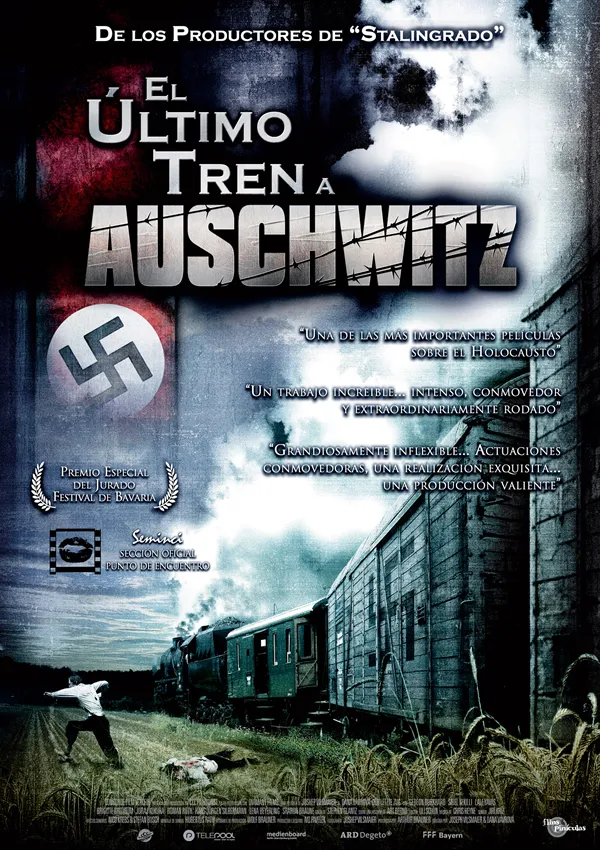
Hello film buffs! I don't know if any of you are regulars to watch this kind of war drama films, but I am, and this kind of films transport us to the past to try to put us in the place of hundreds of thousands of people who lived a tragedy, they become necessary for humanity to never forget. Today I bring you my review of The Last Train to Auschwitz.
¡Hola amigos cinéfilos! No sé si alguno de ustedes sea asiduo a ver este tipo de películas del género drama bélico, pero yo sí y es que este tipo de películas nos transportan al pasado para tratar de ponernos en el lugar de cientos de miles de personas que vivieron una tragedia, se vuelven necesarias para que la humanidad nunca olvide. El día de hoy les traigo mi review de El último Tren a Auschwitz.

Trailer
Sorry guys I could'n find it in english but I will still give you a summary.
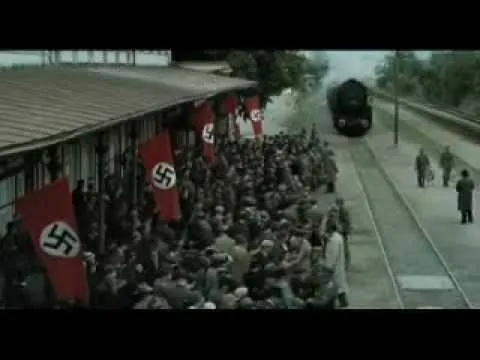
In 1942, Germany came up with what the Germans called "The Final Solution", which was nothing more than a euphemism for the mass murder of the Jews. For this reason, the existing ghettos were exterminated and the deportations of European Jews to the various concentration and extermination camps of the Third Reich intensified. In April 1943, the Nazis hunted down the remaining Jews in Berlin like rats and transported them to Grunewald station, where the last train to Auschwitz, the worst concentration and extermination camp, awaited them. The journey will last 6 days, during which they will have to deal with thirst, hunger, overcrowding and the cruelty of the Nazis, but without giving up, always with the firm decision to escape.
En 1942 en Alemania surgió lo que los alemanes llamaron «La Solución Final» y que no era otra cosa más que un eufemismo para designar el asesinato en masa de los judíos, por esa razón exterminaron los guetos existentes y se recrudecieron las deportaciones de los judíos europeos a los diferentes campos de concentración y exterminio del tercer Reich. En abril de 1943 los nazis cazaron como ratas a los judíos que todavía quedaban en Berlín para esa fecha y los trasladan a la estación de Grunewald, donde los esperan el último tren a Auschwitz, el peor campo de concentración y exterminio. El viaje tendrá una duración de 6 días en los que tendrán que lidiar con la sed, el hambre, el hacinamiento y la crueldad de los nazis, aunque sin rendirse, siempre con la firme decisión de escapar.
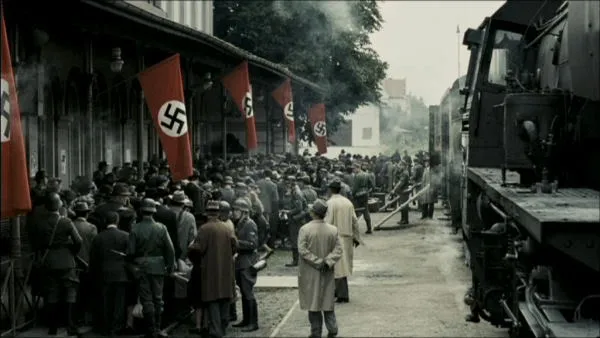
The Last Train to Auschwitz is a film from 2006, directed by Joseph Vilsmaier and Dana Vávrová who offered us a different vision to the one we are used to see in holocaust films, usually we observe the characters developing in scenarios such as ghettos or concentration camps, but almost nobody deals with the subject of the trains that transported these people to the camps, this film instead tells us the tragedy that many lived inside these wagons, how difficult their situation was and how they had to deal with it.
El Último Tren a Auschwitz es una película del 2006, dirigida Joseph Vilsmaier y Dana Vávrová quienes nos ofrecieron una visión diferente a la que acostumbramos ver en películas del holocausto, normalmente observamos a los personajes desenvolverse en escenarios como guetos o campos de concentración, pero casi nadie aborda el tema de los trenes que trasladaron a esas personas a los campos, esta película en cambio nos narra la tragedia que muchos vivieron dentro de esto vagones, lo difícil de su situación y como tuvieron que lidiar con ella.
The train has been loaded with 688 people (it's worth noting that they are goods trains), each carriage is only 9 metres long by 3.60 metres wide and only had a rectangular window as the only ventilation, so you can imagine what the journey of these people will be like. The plot takes place almost entirely in one of the wagons where, although some leaders such as Henry, Albert and Ruth emerge, we could not classify them as protagonists as the film is based on the story of several families.
El tren ha sido cargado con 688 personas (vale acotar que son trenes de carga) cada vagón mide solo 9 metros de largo por 3.60 de ancho y solo tenían una ventana rectangular como única ventilación, así que ya ustedes pueden imaginar lo que será la travesía de estas personas. La trama se desarrolla casi en su totalidad en uno de los vagones donde, si bien surgen algunos líderes como Henry, Albert y Ruth, no podríamos catalogarlos como protagonistas ya que la película se basa en la historia de varias familias.
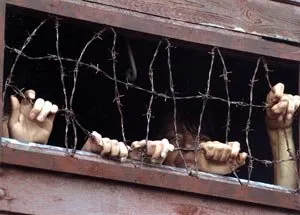
Inside the train people begin to deal with thirst and excessive heat but when they demand water, the Nazi officers respond with a volley of bullets that kills several people, so the survivors have to spend the rest of the journey living with corpses (with all that implies) but almost immediately after entering the train, some of the prisoners come up with a plan to escape. All they have to do is file down the bars of the only window to make room for one of them to get out and unlock the sliding door so that they can all jump off the train. It's a very risky plan because they have to do it while the train is moving. After a few days their efforts paid off because they managed to open the window.
Dentro del tren las personas comienzan a lidiar con la sed y el calor excesivo pero cuando demandan por agua, la respuesta de los oficiales nazis es una ráfaga de balazos que acaba con la vida de varias personas, así que los sobrevivientes tendrán que hacer el resto del viaje conviviendo con cadáveres (con todo lo que eso implica) pero casi inmediatamente desde que entraron al tren, algunos de los prisioneros trazan un plan para escapar. Todo lo que tienen que hacer es limar los barrotes de la única ventana para hacer espacio y hacer que alguno de ellos salga y logre destrabar la puerta corrediza y que de esta manera todos puedan saltar del tren. Es un plan muy arriesgado porque deben hacerlo con el tren en movimiento. A los pocos días sus esfuerzos dieron resultado porque lograron abrir la ventana.
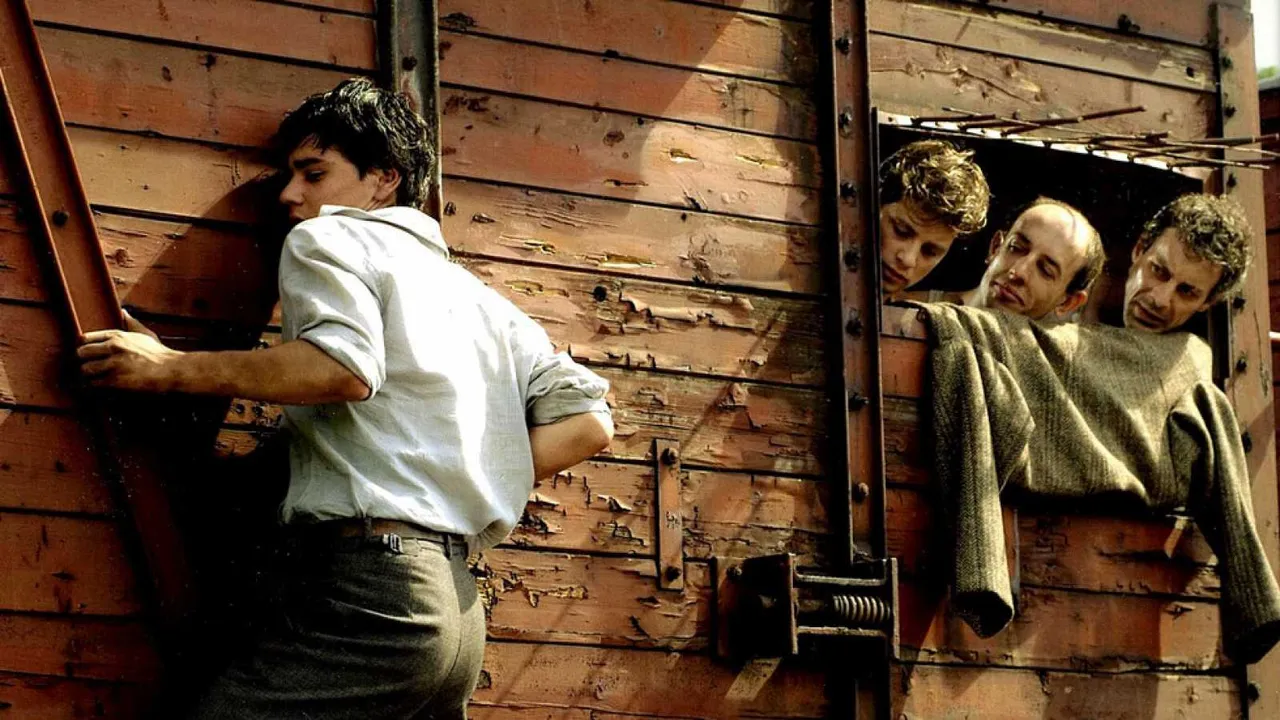
Unfortunately the young man died before he could achieve his goal, as he slipped off the train, immediately a girl tries and she succeeds in opening the carriage door, but despite warnings not to try until the train slows down, a couple of desperate men jump out, and although they manage to survive, the Nazi guards notice their escape and kill them with a burst of gunfire. And to the horror of the train's occupants, the leader of the officers orders the train stopped for an inspection to discover who had the tools with which they managed to scaped.
Lamentablemente el joven murió antes de lograr su cometido, pues resbaló del tren, inmediatamente una chica lo intenta y ella sí logra tener éxito abriendo la puerta del vagón, pero a pesar de las advertencias de no intentarlo hasta que el tren vaya más lento, un par de hombres desesperados saltan, y aunque lograron sobrevivir, los guardias nazis advirtieron su fuga y los asesinaron con una ráfaga de disparos. Y para el horror de los ocupantes del tren, el líder de los oficiales manda a detener el tren para hacer una inspección y descubrir quien tenía las herramientas con las que lograron escapar.
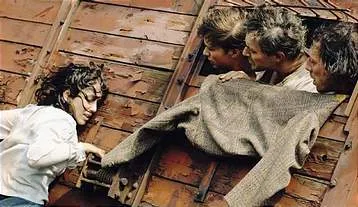
This scene is chilling as the normally cruel and aggressive leader of the Nazi guards is apparently compassionate and merciful towards the girl in the group, obviously to try to get information out of her, but she is sure to have been sleeping when it all happened. The leader slaps the girl's father, who has to endure the humiliation to avoid being murdered in front of his family, and also subtly threatens the girl's mother, telling her that it would be a shame if anything happened to her. Everyone is tense at that moment but the girl remains stoic and firm in her response: "I was sleeping" the guard puts a hand on his belt and when everyone thinks he will reach for his gun, he just pulls out a candy for the girl, who thanks him, then the leader tells the girl's father that if she had not thanked him, he would have shot her mercilessly.
Esta escena es escalofriante ya que el líder de los guardias nazis que normalmente es cruel y agresivo, se muestra aparentemente compasivo y piadoso con la niña del grupo, obviamente para tratar de sacarle información, pero ella segura haber estado durmiendo cuando todo ocurrió. El líder abofetea al padre de la niña, quien tiene que aguantarse la humillación para evitar que lo asesinen frente a su familia, también amenaza sutilmente a la madre de la niña diciéndole que sería una pena que algo le ocurriera. Todos están en tensión en ese momento pero la niña, se mantiene estoica y firme en su respuesta: "yo estaba durmiendo" el guardia se lleva una mano al cinto y cuando todos piensan que buscará su arma, él solo saca un caramelo para la niña, la cuál agradece, entonces el líder le dice al padre de la niña que si ella no le hubiese agradecido, él le hubiese disparado sin misericordia.
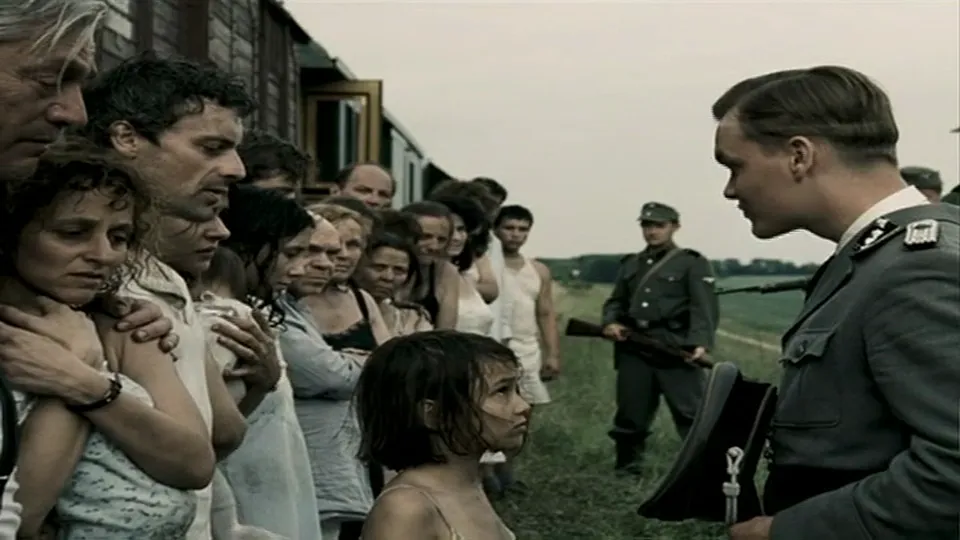
The film is full of shocking and cruel scenes, like the death of the babies, which hurt me a lot, but at least the directors give us scenes that serve as "respite" or "relief" by showing us in flashbacks the best moments in the lives of the characters, And here I must comment on the good work of the photography team, as you can see the difference not only in the joy of the characters, but also in the amount of light in the scenes, the colours, the camera filters, much more harmonious in comparison with the dark and almost monochromatic scenes inside the train that transmits an oppressive atmosphere.
El film está lleno de escenas impactantes y crueles, como la muerte de los bebés que fue algo que me dolió muchísimo, pero al menos los directores nos regalan escenas que nos sirven de "respiro" o de "alivio" al mostrarnos en flashbacks los mejores momentos en la vida de los personajes, y aquí debo comentar el buen trabajo del equipo de fotografía ya que se nota la diferencia no solo en la alegría de los personajes, sino en la cantidad de luz de las escenas, los colores, los filtros de cámara, mucho más armoniosos en comparación con las oscuras y casi monocromáticas escenas del interior del tren que nos transmite un ambiente opresivo.
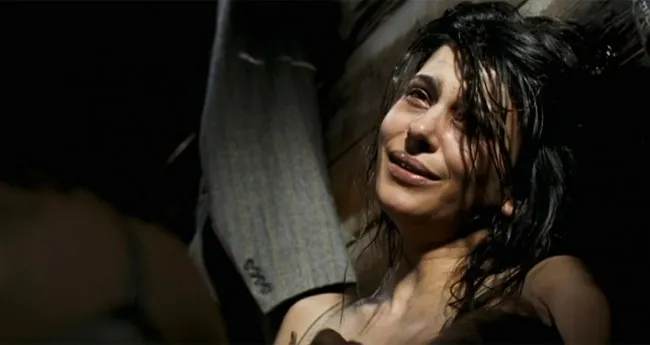
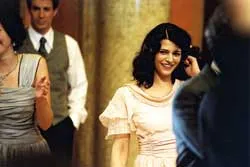
In my opinion the performances were brilliant, the artistic composition wonderful, the story very good, although I think it lacked a bit of rawness compared to reality in the sense that, although emphasis is placed on the difficulties of the journey in those conditions such as fatigue, thirst, hunger and heat, at no time did they allude to the putrefaction of the corpses with which the prisoners had to travel, the flies, the diseases that all this generated, I say this because it's something that many of the survivors of the holocaust have told.
A mi juicio las actuaciones estuvieron brillantes, la composición artística maravillosa, la historia muy buena, aunque creo que le faltó un poco de crudeza comparado a la realidad en el sentido de que, si bien se hace énfasis en las dificultades del viaje en esas condiciones como el cansancio, la sed, el hambre y el calor, en ningún momento hicieron alusión a la putrefacción de los cadáveres con los que los prisioneros tuvieron que viajar, las moscas, las enfermedades que todo eso generó, lo digo porque es algo que han relatado muchos de los sobrevivientes del holocausto.
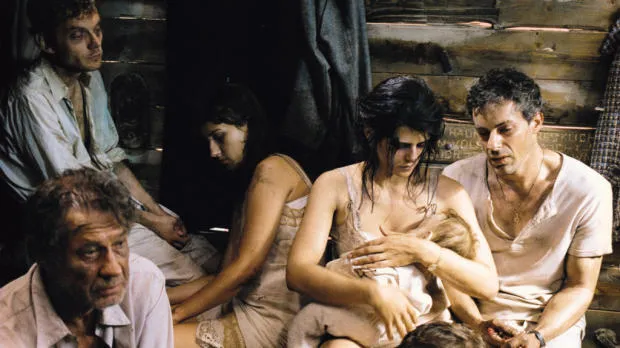
Another inconsistency I noticed was the fact that at one of the train stops, while the prisoners were screaming for food and water, one of the Nazi leaders at the station took pity on them and ordered his officers to give them bread and water, acting against the will of the leader in command of the train, of course. From the dialogue we realise that his humanitarian act may be due to the fact that they are virtually certain of Germany's defeat by the Allies and that he is virtually looking for leniency when it's his turn to appear. However, if we take into account the date of the film, it's April 1943, and Germany's defeat was in 1945, although by the end of 1944 they were already beginning to lose territory. By 1943 the Nazis were still confident in the solidity of their Reich.
Otra de las inconsistencias que noté, fue el hecho de que en una de las paradas del tren, mientras los prisioneros pedían a gritos agua y comida, uno de los líderes nazi que se encontraba en esa estación, se compadeció de ellos y ordenó a sus oficiales darles pan y agua, lo hizo actuando contra la voluntad del líder al mando del tren, desde luego. De acuerdo al diálogo nos damos cuenta de que su acto humanitario puede deberse al hecho de que están prácticamente seguros de la derrota de Alemania ante los aliados y que él prácticamente lo que está buscando es indulgencia cuando le llegue el turno de comparecer. Sin embargo, si tomamos en cuenta la fecha en la que trascurre el film, es abril de 1943, y la derrota de Alemania se dio en 1945, aunque a finales del 44 ya comenzaban a perder territorio. Para 1943 los nazis todavía confiaban en la solidez de su Reich.

Friends, that's all for today. The Last Train to Auschwitz, despite the inconsistencies of some scenes, I liked it very much, especially for the fact that it's the only film (at least that I know of) that deals with the ordeal lived by the Jews from the perspective of the trains, it makes us feel how terrible that journey was for the poor prisoners. Thank you very much for your attention, I really recommend this film.
Amigos esto ha sido todo por hoy. El último Tren a Auschwitz, a pesar de las inconsistencias de algunas escenas me gustó muchísimo, sobre todo por el hecho de que es, el único film (al menos que yo sepa) que trata el calvario vivido por los judíos desde la perspectiva de los trenes, nos hace sentir lo terrible que fue esa travesía para los pobres prisioneros. Muchas gracias por su atención, de verdad les recomiendo esta película.

Imagen diseñada por mi en el editor de Canva